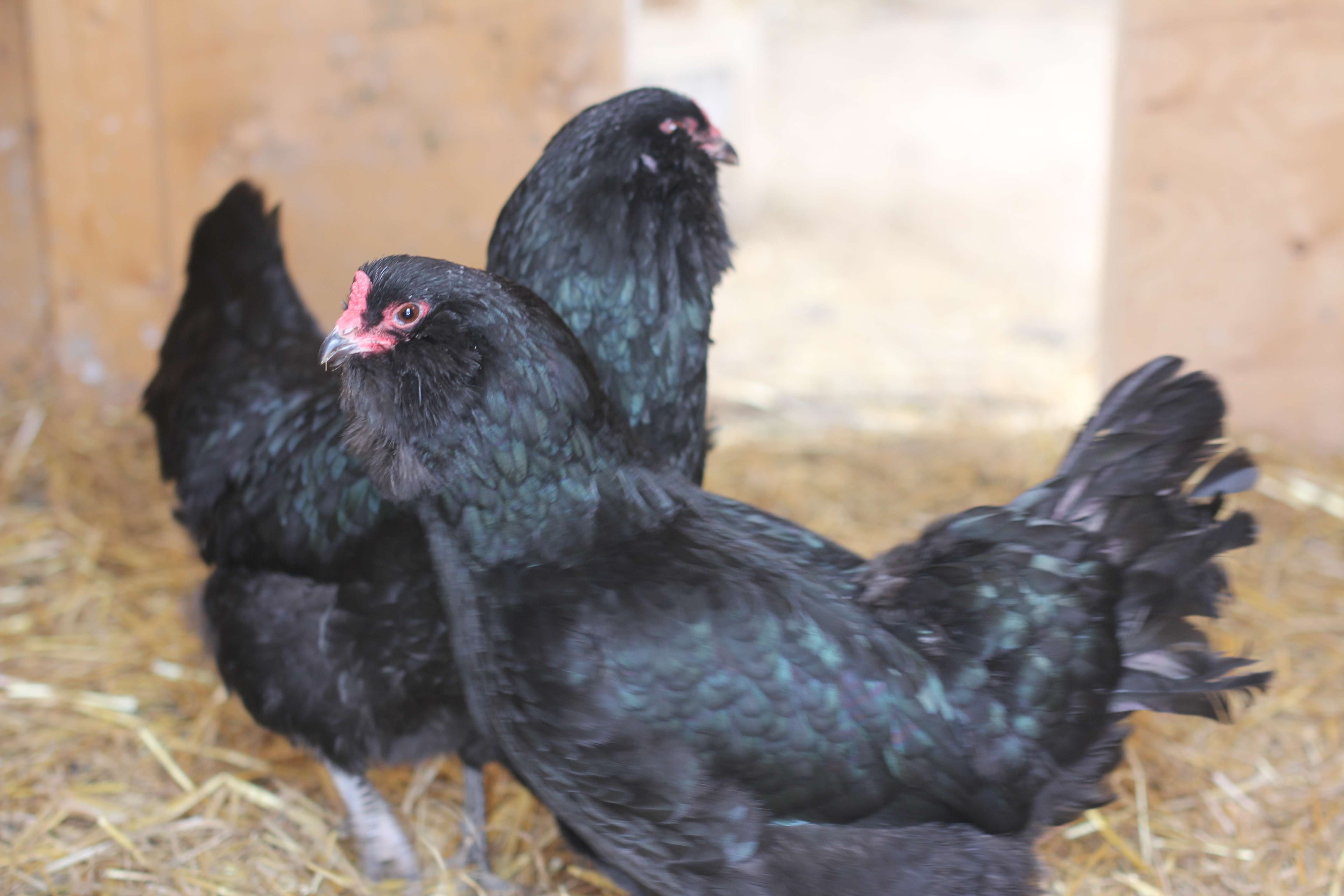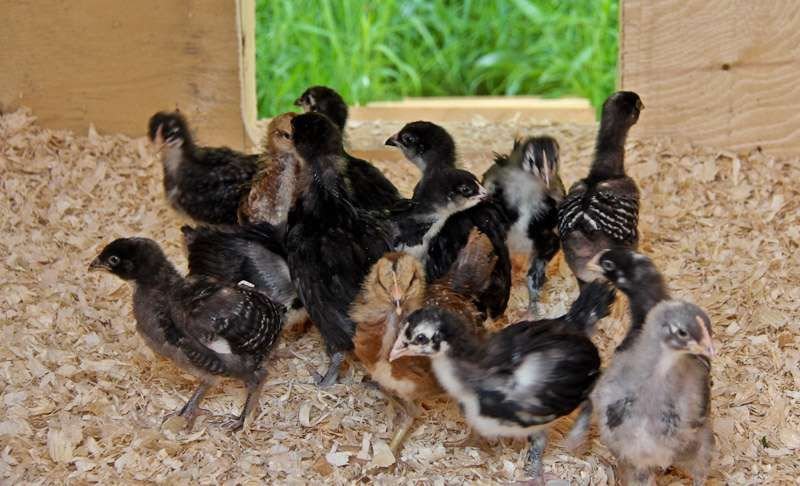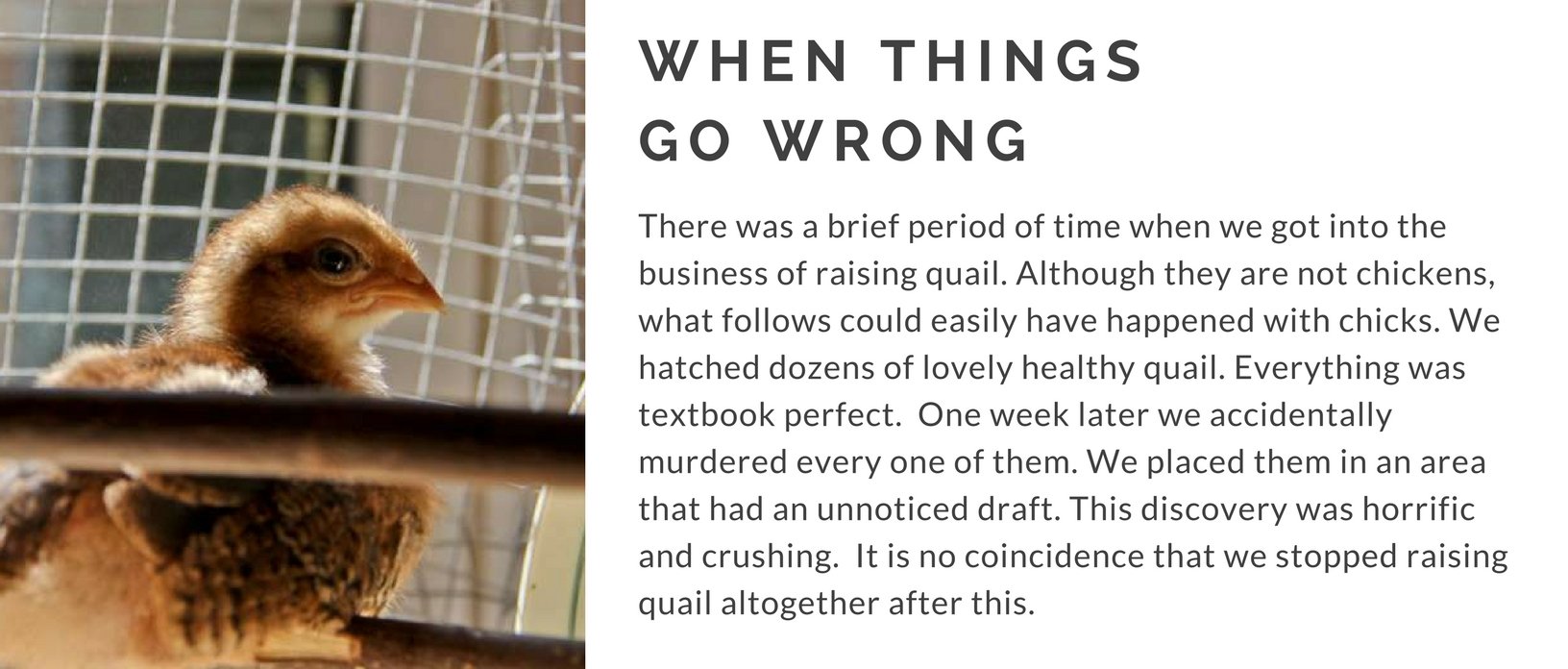.jpg)
This is the first part in a complete series on raising chickens!
When it comes to self sufficient living and control over your food supply, owning a flock of chickens is hard to beat. A small flock of dual purpose chickens can provide your family with many years of meat and eggs as well as an income or resource to barter and trade with. If you have a garden, chickens will create compost, eat weeds, pesky bugs and they can be used to till and aerate your gardens. Chickens are quite wonderful creatures.
With all the wonderful things that chickens can do, it is very easy to romanticize keeping a backyard flock. Years ago, when I was dreaming about owning chickens, I had a picture in my mind of how it would be. A good morning cock-a-doodle-doo from the rooster, egg baskets brimming with rainbows of coloured eggs and chickens happily clucking and pecking in the yard. The truth is, for every deliciously wonderful barnyard moment there is another that will not be as pretty. Your chickens are going to teach you some hilarious lessons and some hard ones. One thing is for certain. Chickens arrive loaded with personality and bring a lot of life to your back yard.
It's really not difficult to raise chickens so don't be intimidated. It is in your best interest to understand them though. Chickens, given the chance will get into trouble. They will tear through your garden like a pack of hooligans. They will bicker and fight and they will find a way to get into places they don't belong. They are messy and they can be noisy too. When you know what to expect, you can reap the benefits of chickens while dealing with a lot less of the trouble!
This guide will take you through the essentials: selecting breeds, caring for chicks, shelter and supplies to more challenging topics like social dynamics, illness and death. It also offers some true stories and anecdotes that shed light on what it's really like to keep a flock of chickens. Our hope is that you will learn from not only our experience but our mistakes. This is the information I wish I had read before we brought chickens home for the first time.

Before you buy chickens
Chickens can live for ten to fifteen years. Depending on your intentions, they can be a major long term commitment. Raising chickens for meat is a short term thing but keeping hens for eggs is very different. Some will lay for a few years and then decide to retire. Others will keep laying for five or more years, then slow down or stop. Still others will slowly produce less over the years. This depends on the breed, the living environment, health and numerous other variables. One thing is certain: you are likely to have hens that stop laying and you will need to decide what to do when they live beyond their egg laying years. Here are some practical things you should consider before you bring those cute little chicks home to your family.
By-laws and Restrictions
Before making the investment, ensure that your local by-laws and policies will not cause you problems. They vary widely from location to location. Some places don't allow roosters, some places limit the number of chickens you can have and others have really rigorous policies. If you plan on selling eggs you will also want to look into any obstacles you might face there. Ideally, you're raising chickens on a homestead or farm and will not need to worry about such silliness.
Highly Addictive
If you do get chickens you might as well scale the size of your coop to hold double or triple your planned flock. You might tell yourself you only need a handful but most chicken keepers end up expanding their flock, for one reason or another. With such an amazing range of breeds, colored egg temptation is everywhere. Six is likely to grow to a dozen and so you might as well plan for this in advance. The time to do so is when building the coop. It's easy, and costs relatively little, to build a bigger coop. The same cannot be said when trying to turn a six chicken coop into one that will handle twenty.
I thought that I was immune to this phenomenon but when spring arrives, I have a strong urge to get more chicks. I recently saw a photo of a Polish chicken going around on the Internet. We need some of those punky hairdos around here. Well, “need” might be a slight overstatement.

Life Lessons & Loss
One thing you can count on is that regardless of how careful you are, at some point a chicken will die from either illness, predators, or some silly mistake you have made. If you have kids, be aware that you will almost certainly go through some life and death grief lessons when you have chickens. Here are a couple of our early "no so nice" experiences.

There was also the time we started raising Quail ...

Costs
You can spend as much or little as you want on the coop and other supplies. Chickens need a well ventilated, dry and draft free shelter. The rest is up to you. Feed is the most expensive factor to consider. You you might find "16+ Ways To Feed Chickens" useful.
If you are wondering if it's cheaper to just buy your meat and eggs, than produce your own, the answer is for many people “probably”.
For regular meat and eggs, yes, store bought will likely be cheaper. If you buy organic meat and eggs, the costs will be more comparable as long as you are not factoring in your time or the initial capital expenditures (coop and fencing). There are enterprising ways to offset your costs should you seek them, such as: growing your own feed, selling eggs or meat or selling chicks and fertilized eggs.
The factors that make backyard chickens worth it include:
- Self sufficiency - There is no better way to ensure that your family has a reliable food source. With proper management you hatch more chicks as needed and have as long term sustainable access to meat and eggs.
- Humane food production - The massive chicken industry treats chickens as a commodity, thousands of chickens are housed together, the conditions varying from one facility to another but no matter how you look at it, it's not a natural or happy life for an animal.
- Hormones and antibiotics - Close housing means that hormones and antibiotics are routinely used. The use of hormones in the food supply is a contributing factor to the increase in children hitting puberty far earlier than they should. Raise your own food and you eliminate this concern.
- Fertilizer - its no secret that chickens provide a lot of nitrogen rich manure which your soil needs desperately when you garden. They also eat garden and kitchen scraps and can be put to work in a garden weeding your garden beds in the spring and Autumn with careful management.
If none of these factors deter you then welcome to the world of raising chickens!
This content comes from my Ebook "The Homesteader's Handbook: Raising Chickens". It's available on Amazon here. I've decided to give the knowledge away here on steemit where it may help those looking to get into raising chickens. This was always my intention when writing this book.
All rights reserved. Photos copyright @walkerland The information in this book is true and complete to the best of our knowledge. All recommendations are made without guarantee. The author and publisher disclaim any liability in connection with the use of this knowledge.
Building a greener, more beautiful world one seed at a time.
Homesteading | Gardening | Frugal Living | Preserving Food| From Scratch Cooking|
You can also find me at: walkerland.ca
Photo copyright: @walkerland

